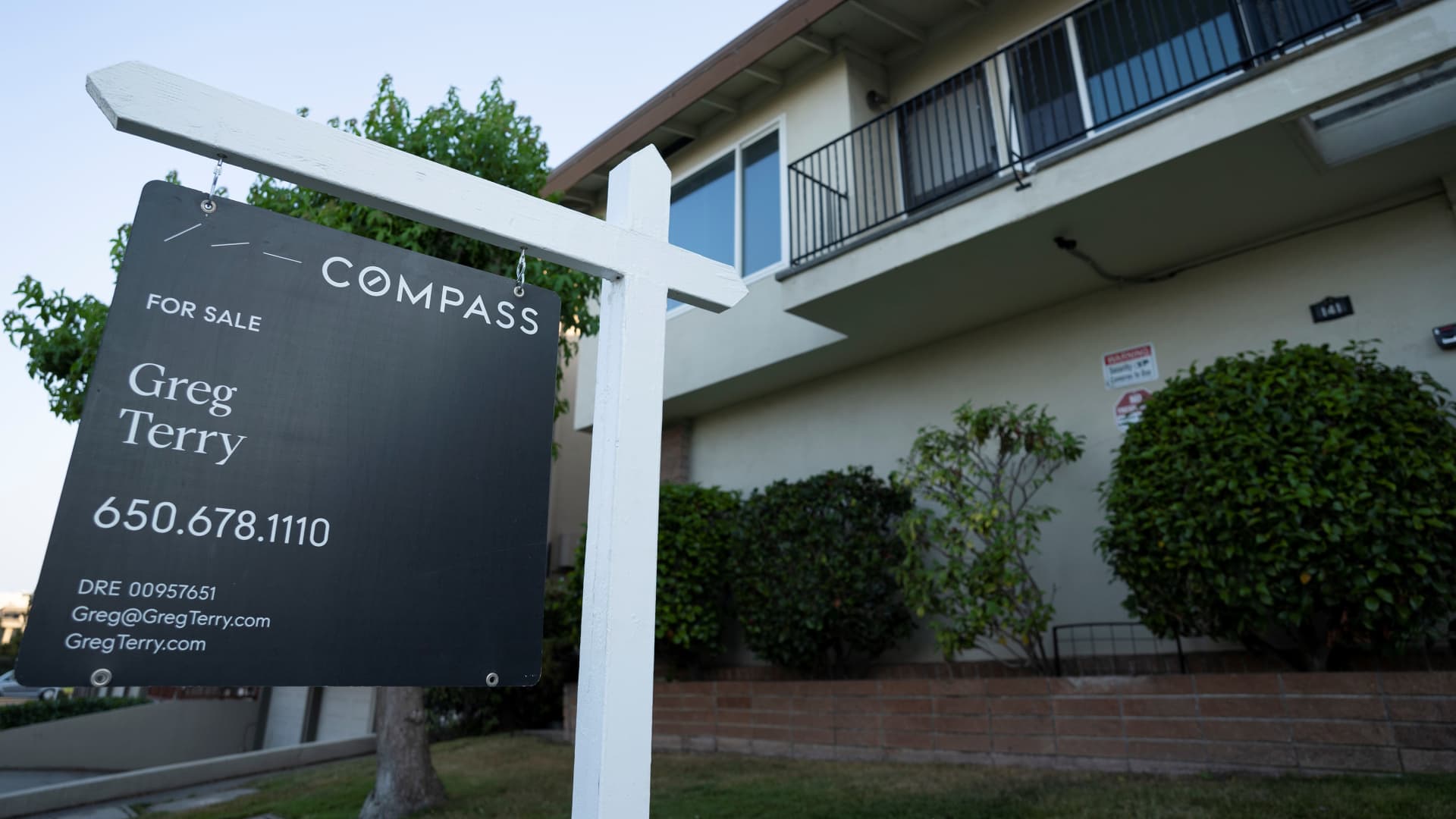Sales of previously owned homes were 4.1% lower in October compared with September, running at a seasonally adjusted annualized rate of 3.79 million units, according to the National Association of Realtors.
It was the slowest sales pace since August 2010. Analysts were expecting a smaller drop, to 3.9 million units. Sales were down 14.6% year-over-year.
The October sales count is based on closings from contracts likely signed in August and September. The average rate on the 30-year fixed mortgage had dropped to near 7% at the end of August, but then began rising sharply, jumping over 8% by mid-October. Rates have since retreated somewhat.
“Prospective home buyers experienced another difficult month due to the persistent lack of housing inventory and the highest mortgage rates in a generation,” said Lawrence Yun, NAR’s chief economist. “Multiple offers, however, are still occurring, especially on starter and mid-priced homes, even as price concessions are happening in the upper end of the market.”
At the end of October there were 1.15 million homes for sale, down 5.7% from a year earlier. This is about half as many homes as were available for sale pre-Covid. At the current sales pace, that represents a 3.6-month supply. a six-month supply is considered a balanced market between buyer and seller.
Tight supply kept pressure under prices. The median price of an existing home sold in October was $391,800, an increase of 3.4% from a year ago ($378,800). Prices rose in all regions of the country. These annual price increases have been getting larger for four straight months. Roughly 28% of homes sold above list price.
“While circumstances for buyers remain tight, home sellers have done well as prices continue to rise year-over-year, including a new all-time high for the month of October,” Yun said. “In fact, a typical homeowner has accumulated more than $100,000 in housing wealth over the past three years.”
Sales fell in all price categories up to $750,000, but there was an increase in sales of higher end homes. Homes priced above $1 million were up just over 9% from a year ago. Wealthier buyers either tend not to use mortgages or are less sensitive to monthly rate changes. Yun also noted that there are more homes available for sale on the higher end of the market.
First-time buyers represented 28% of October sales, unchanged from a year ago and still significantly lower than the 40% share they have represented historically. Individual investors bought 15% of the homes, down from 18% in September and 16% from a year ago. All-cash deals made up 29% of sales, up from 26% in October 2022.
